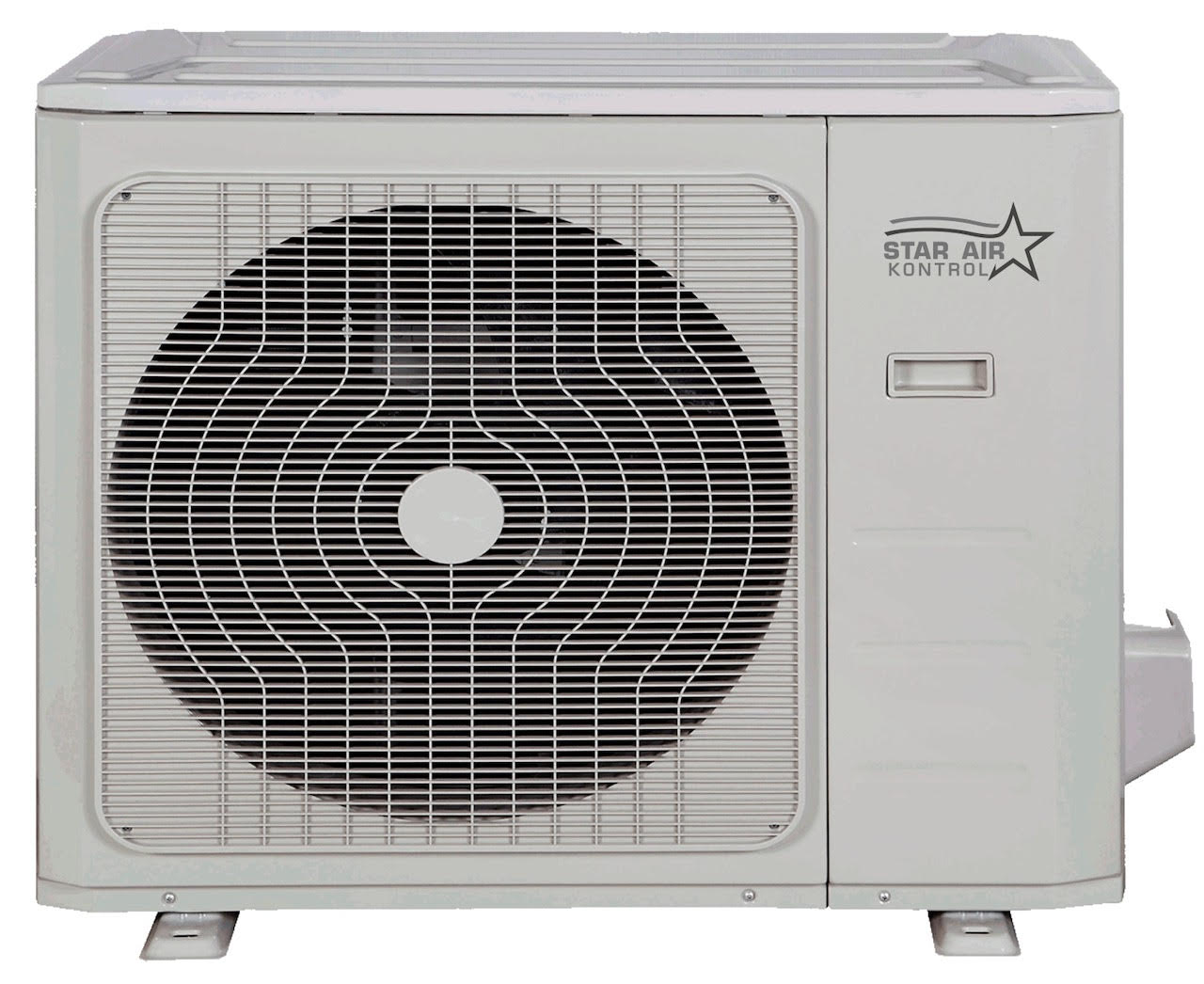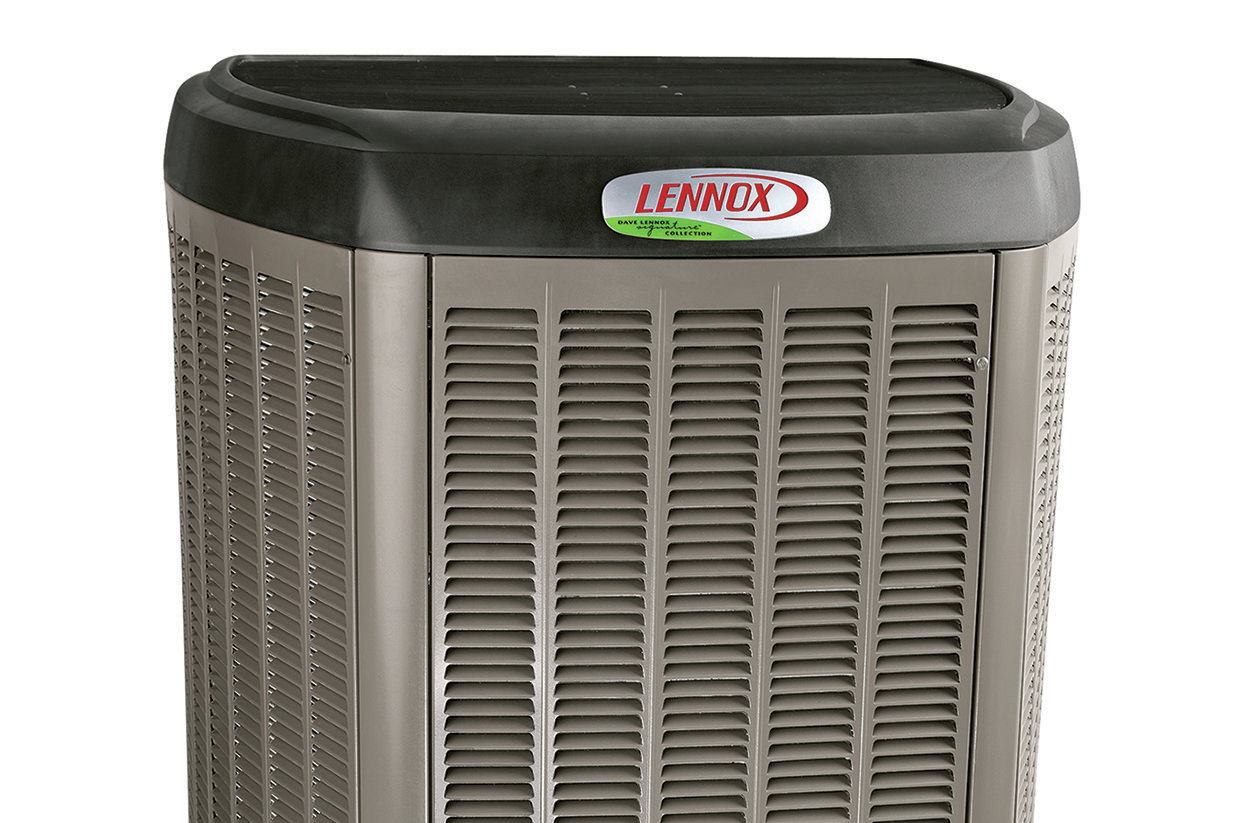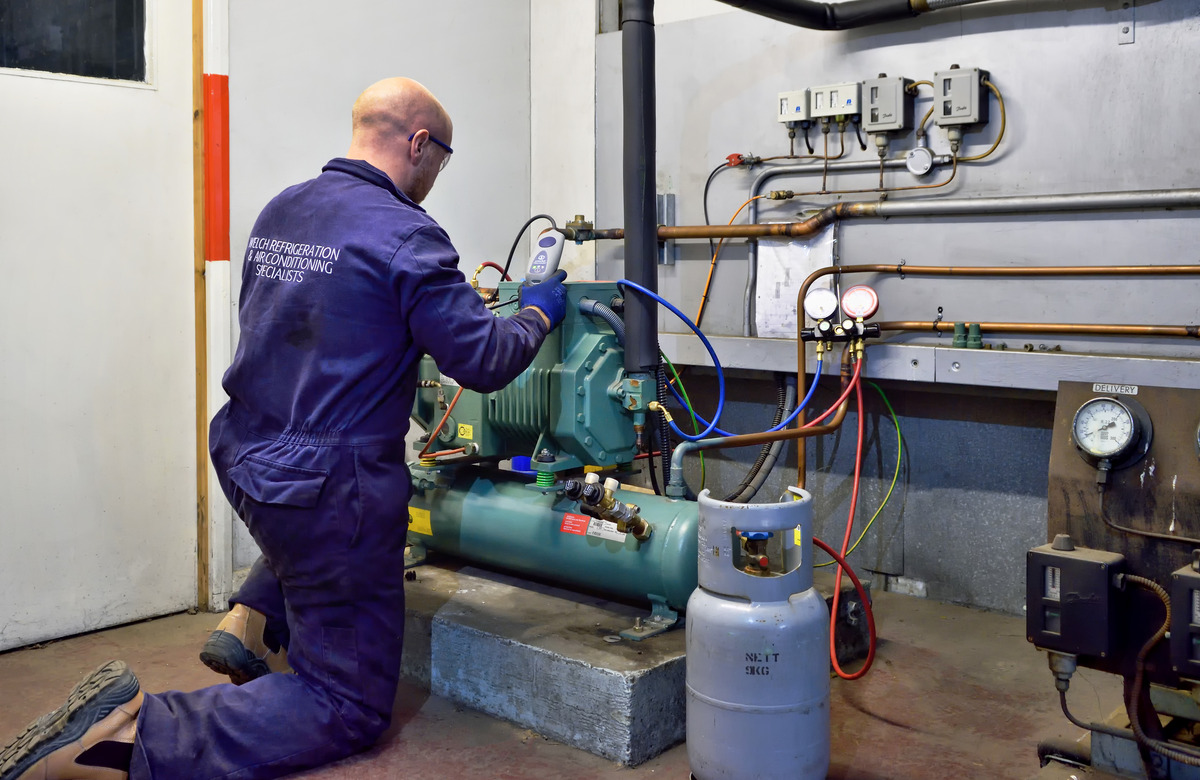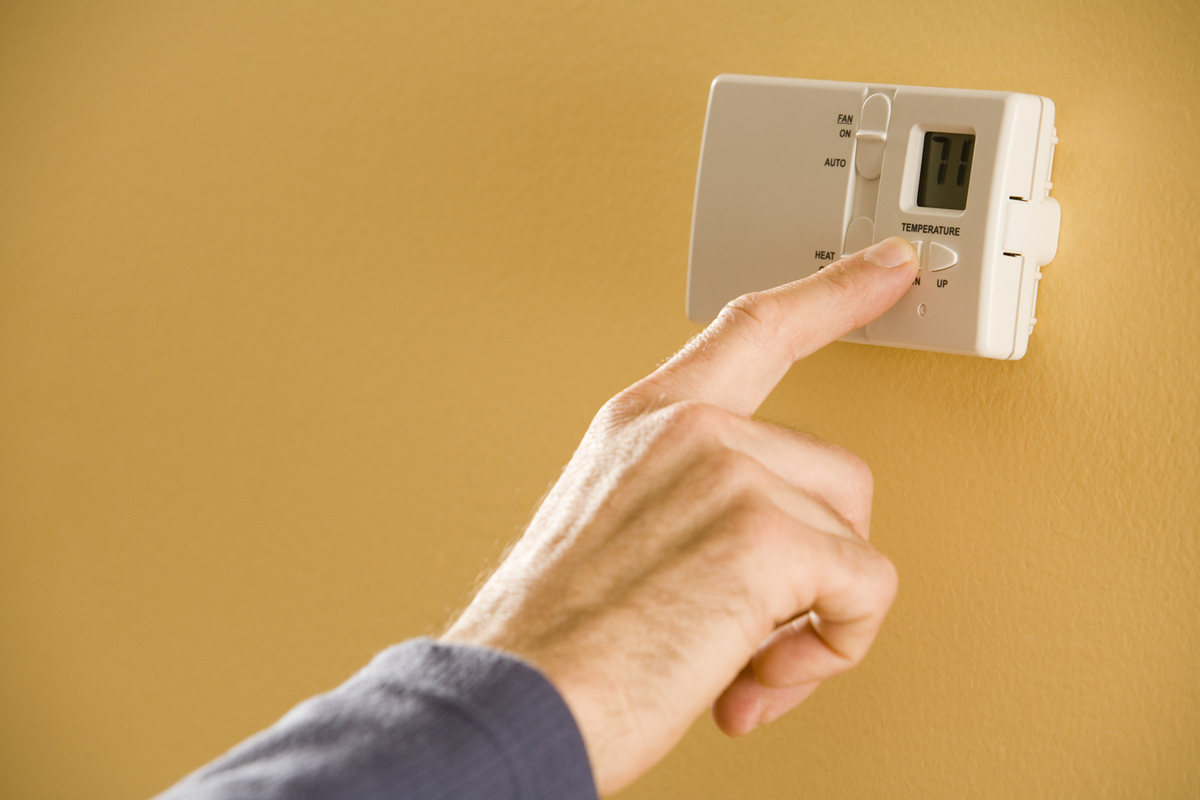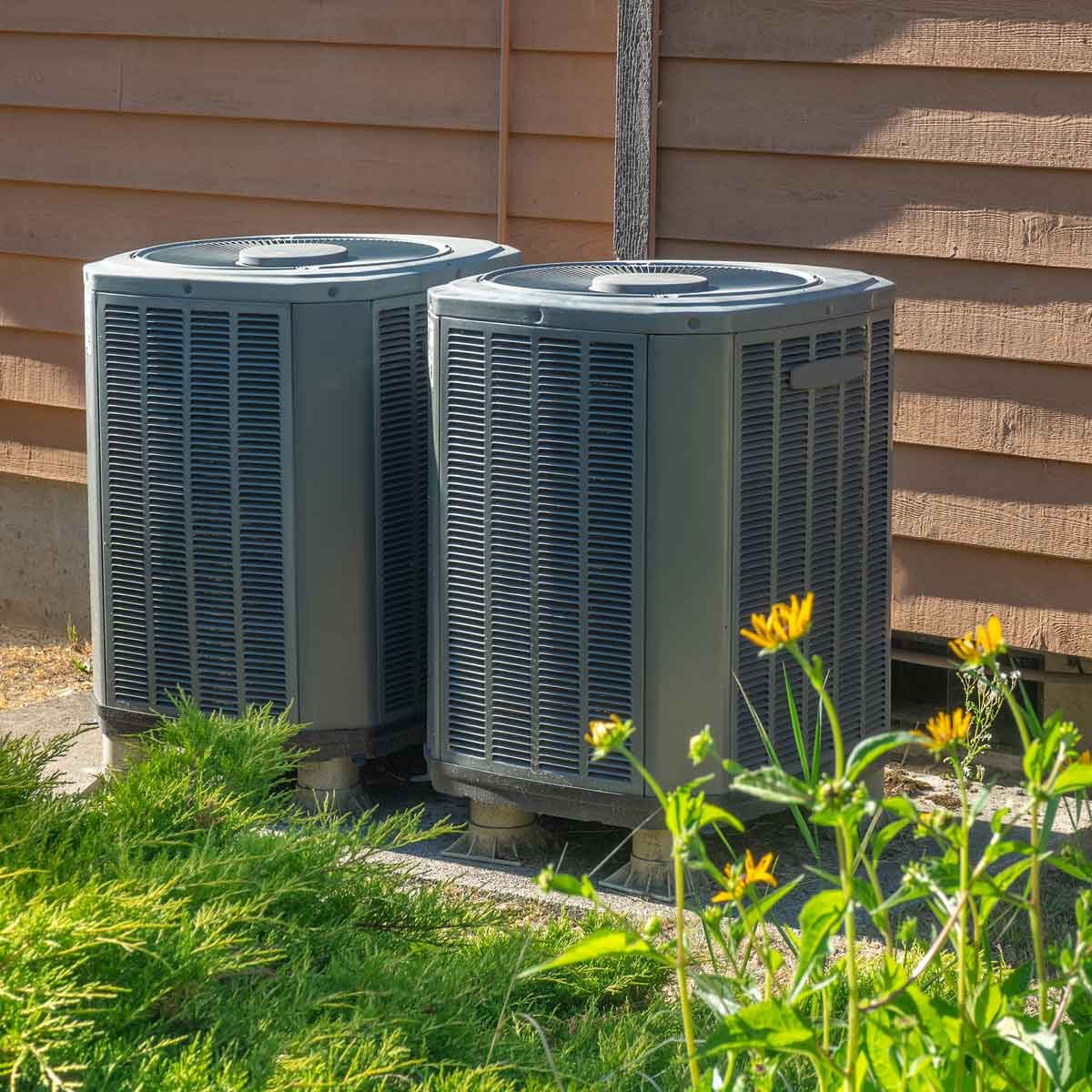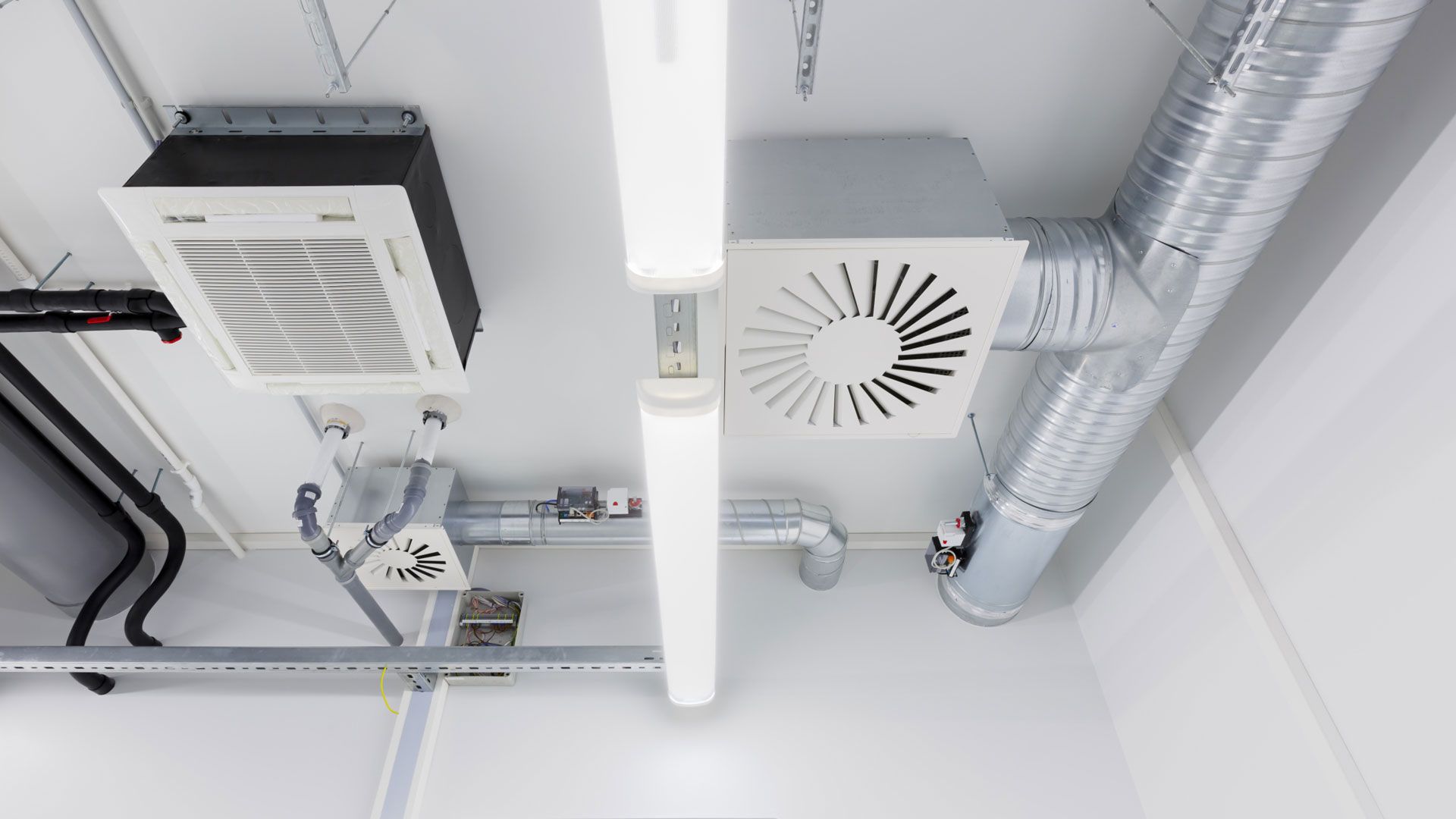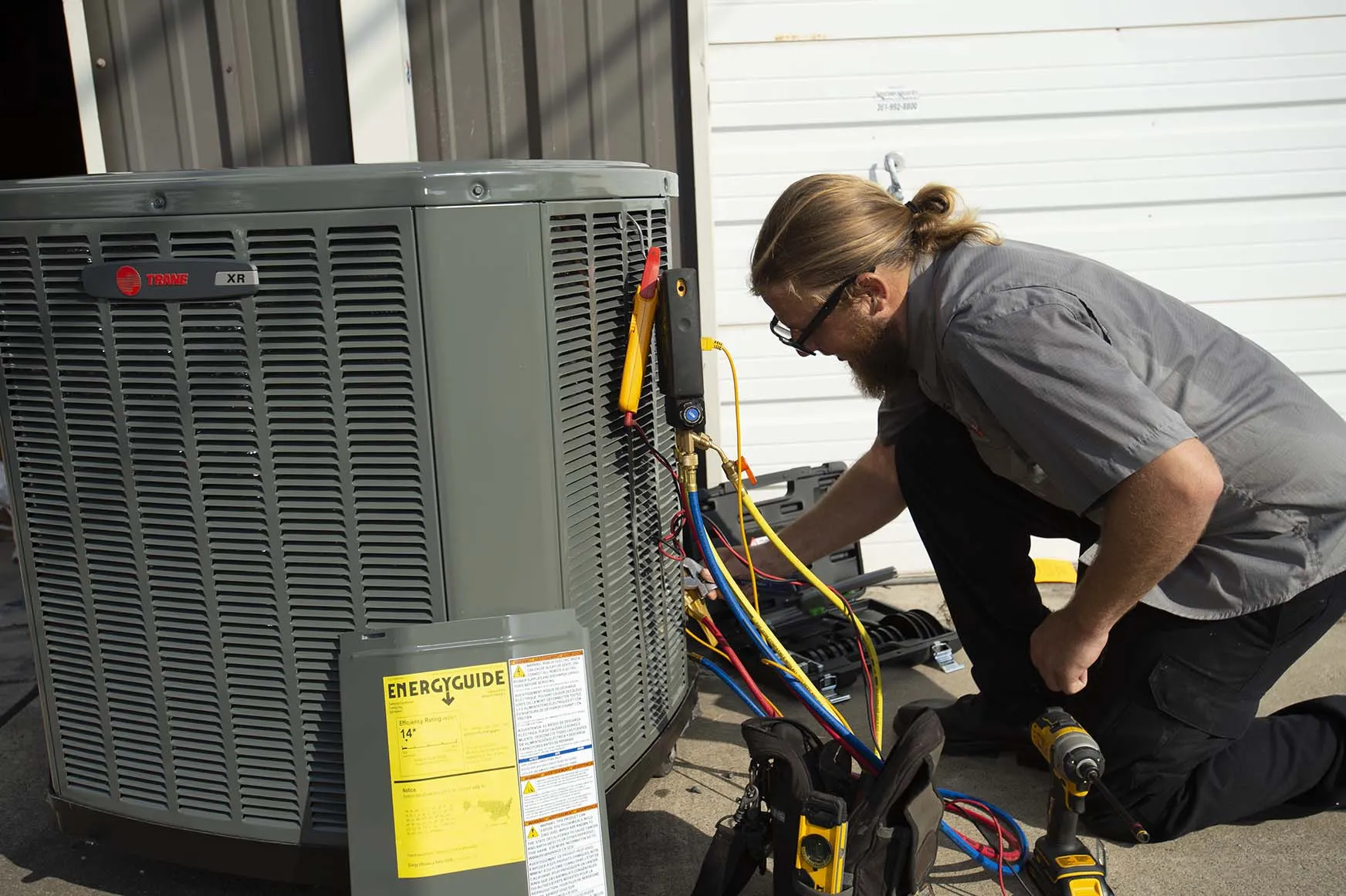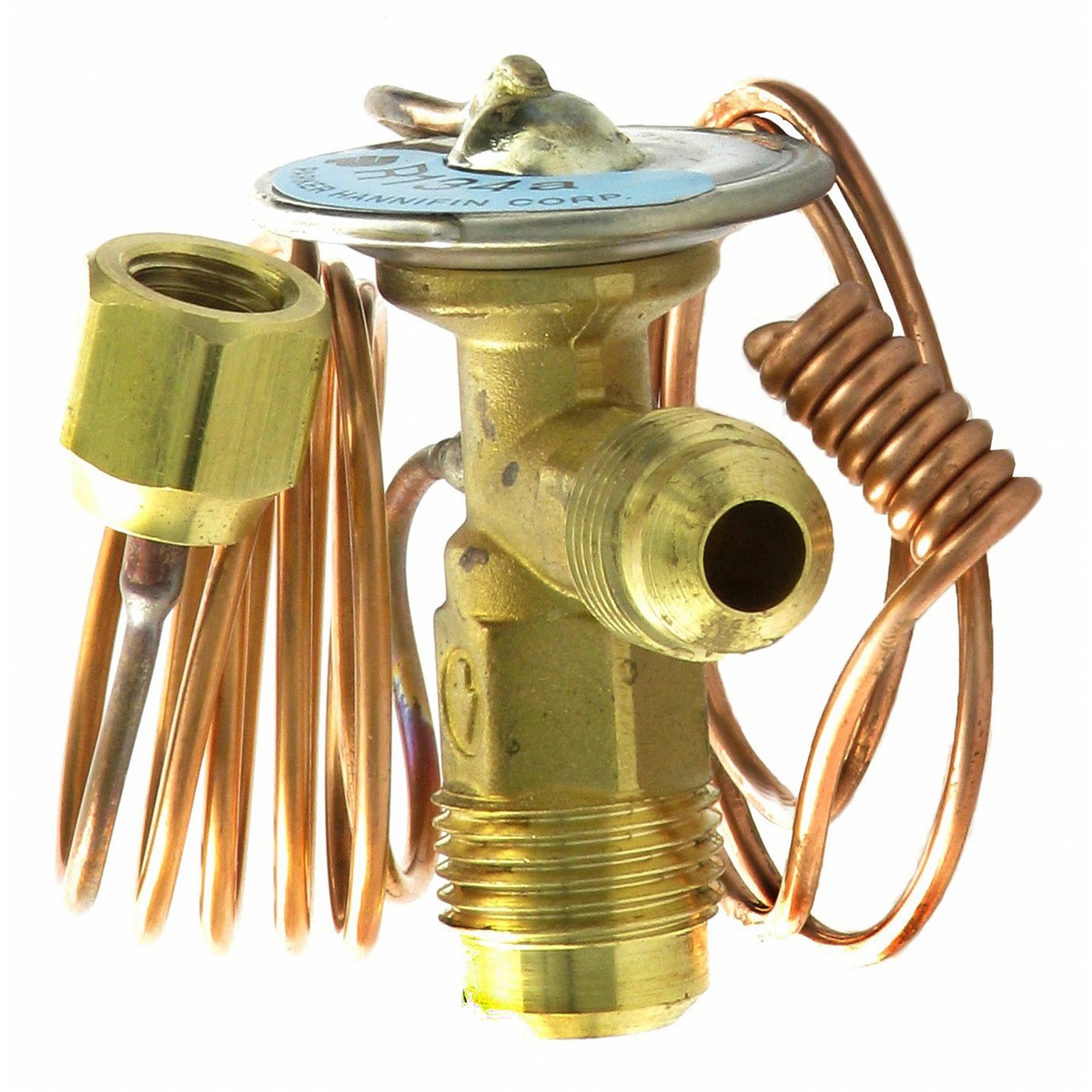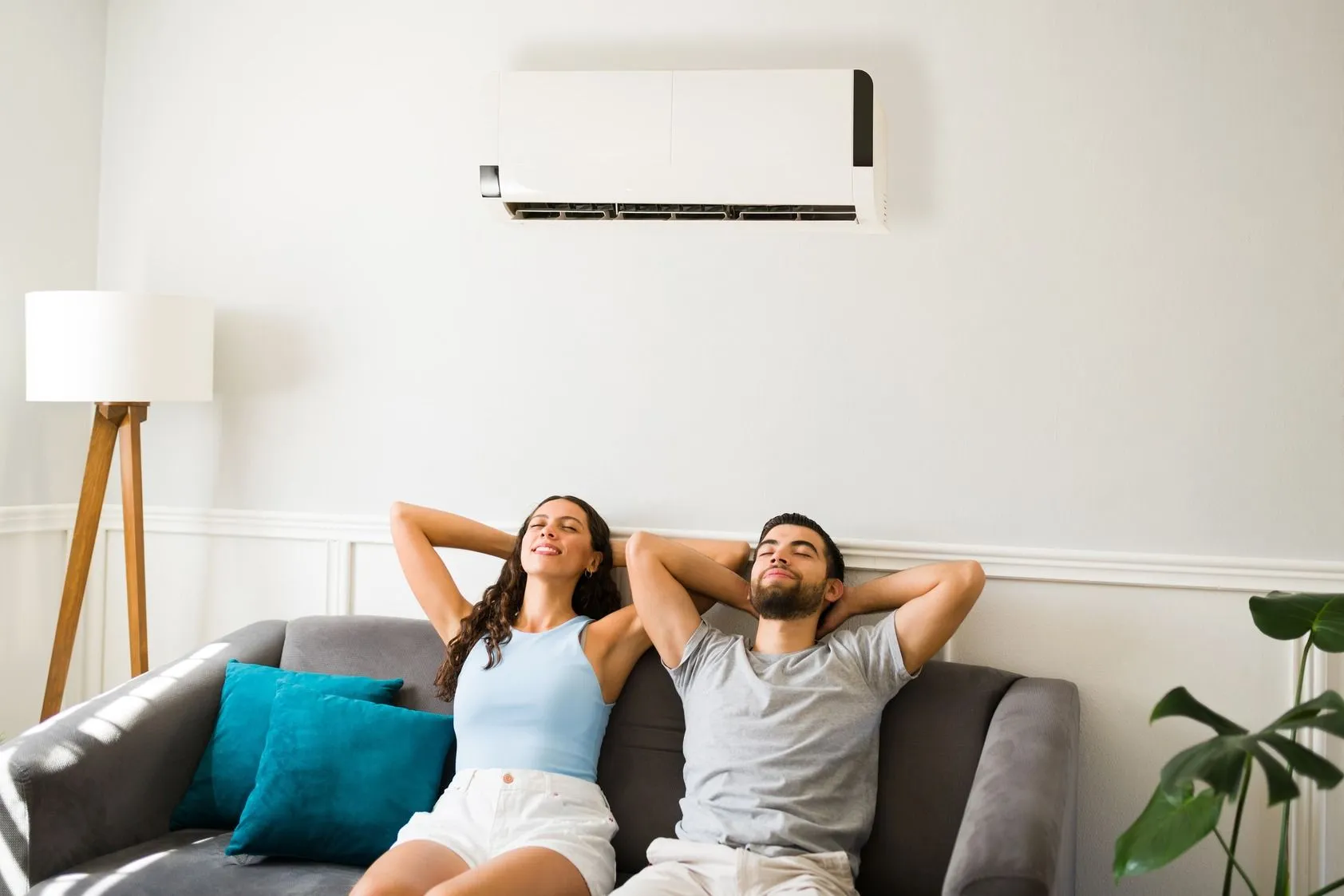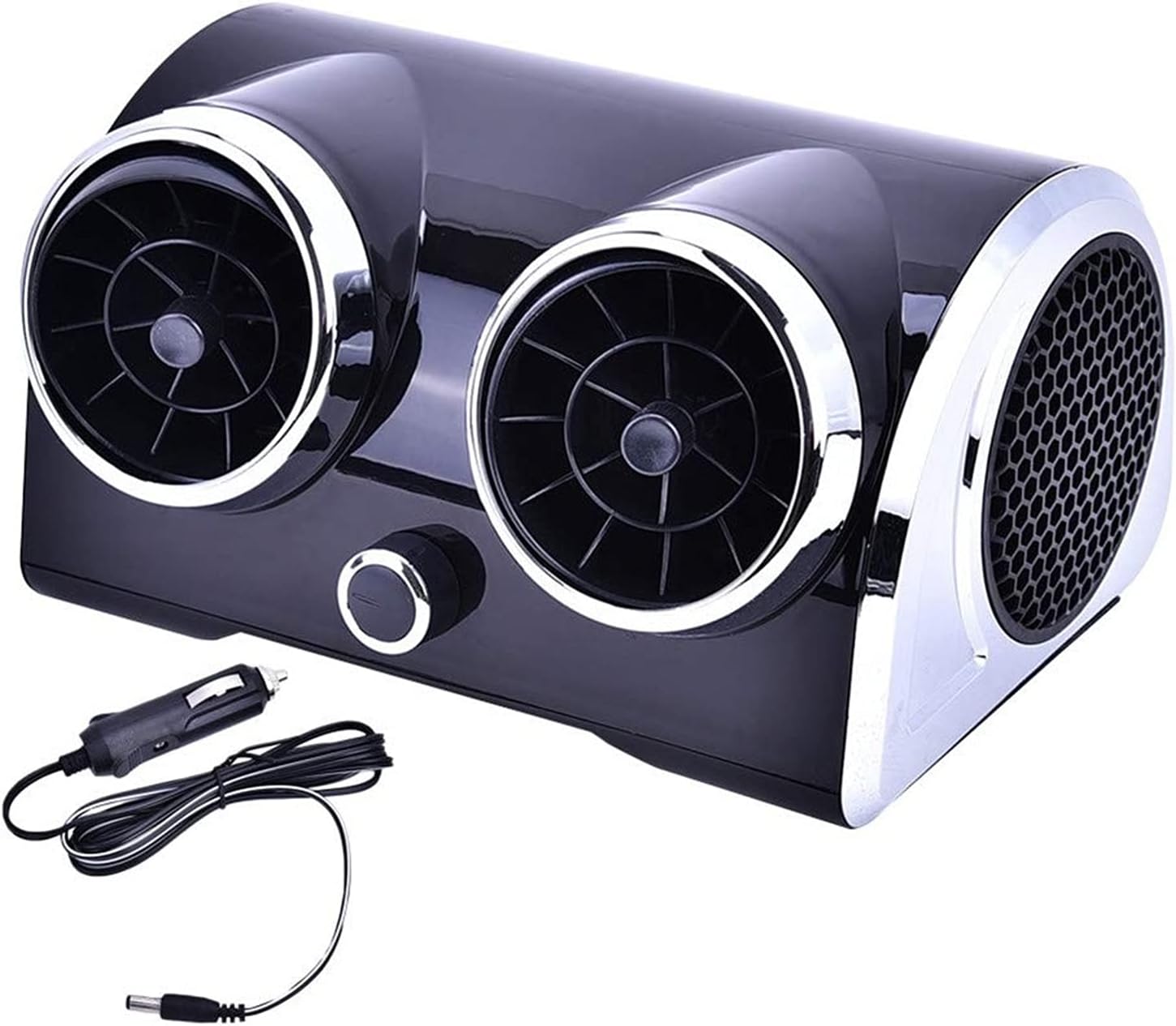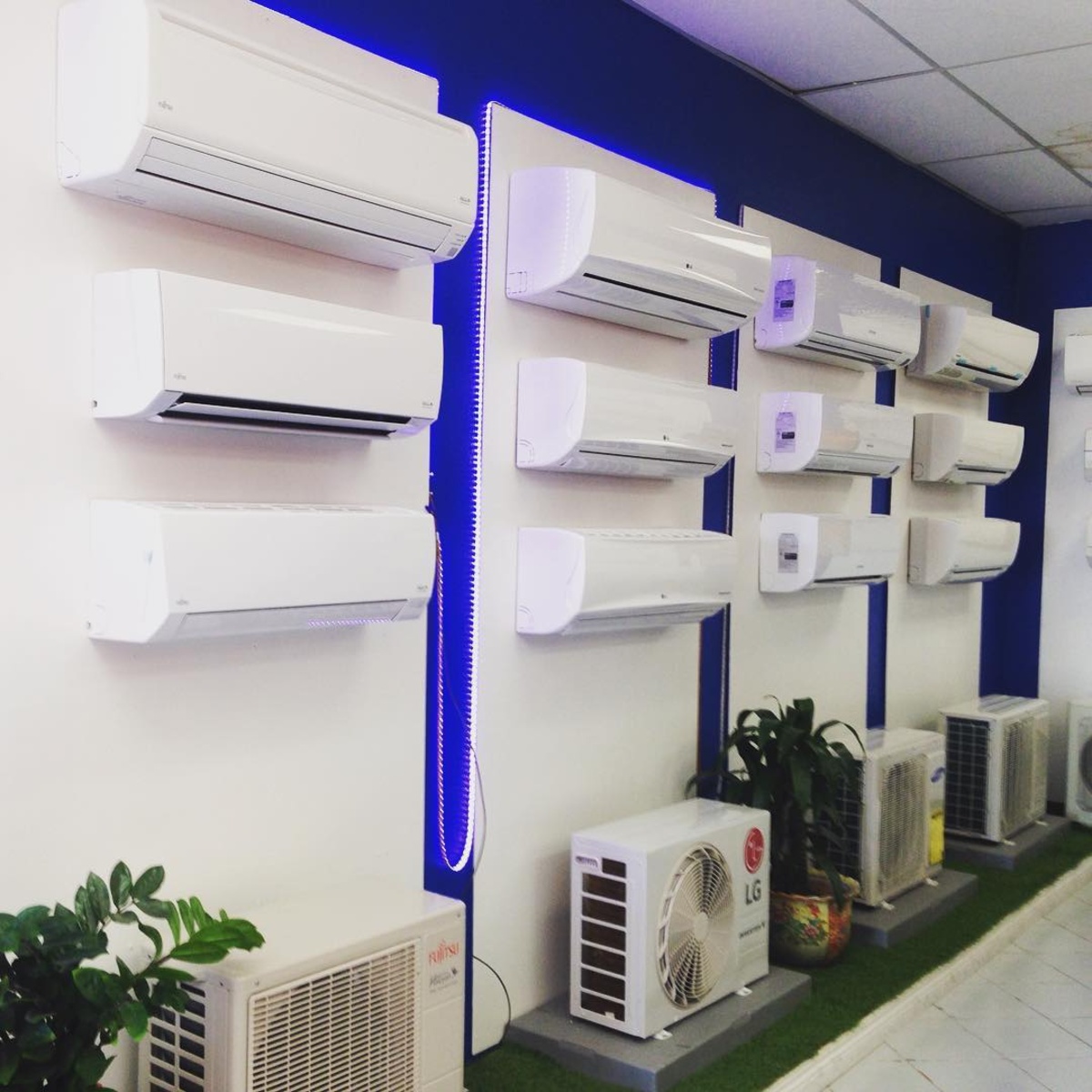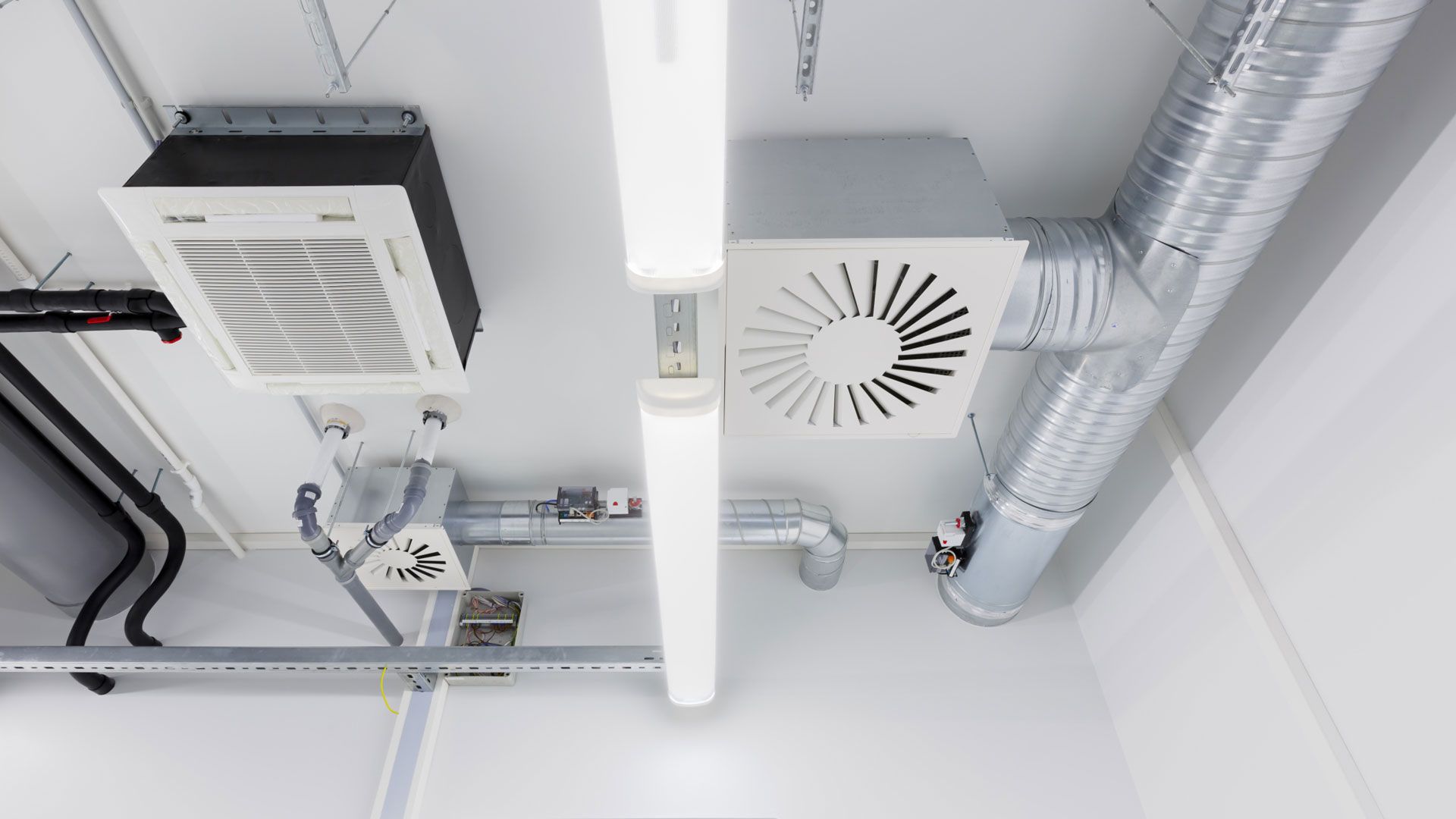Home>Home Maintenance>What Is Air Conditioning
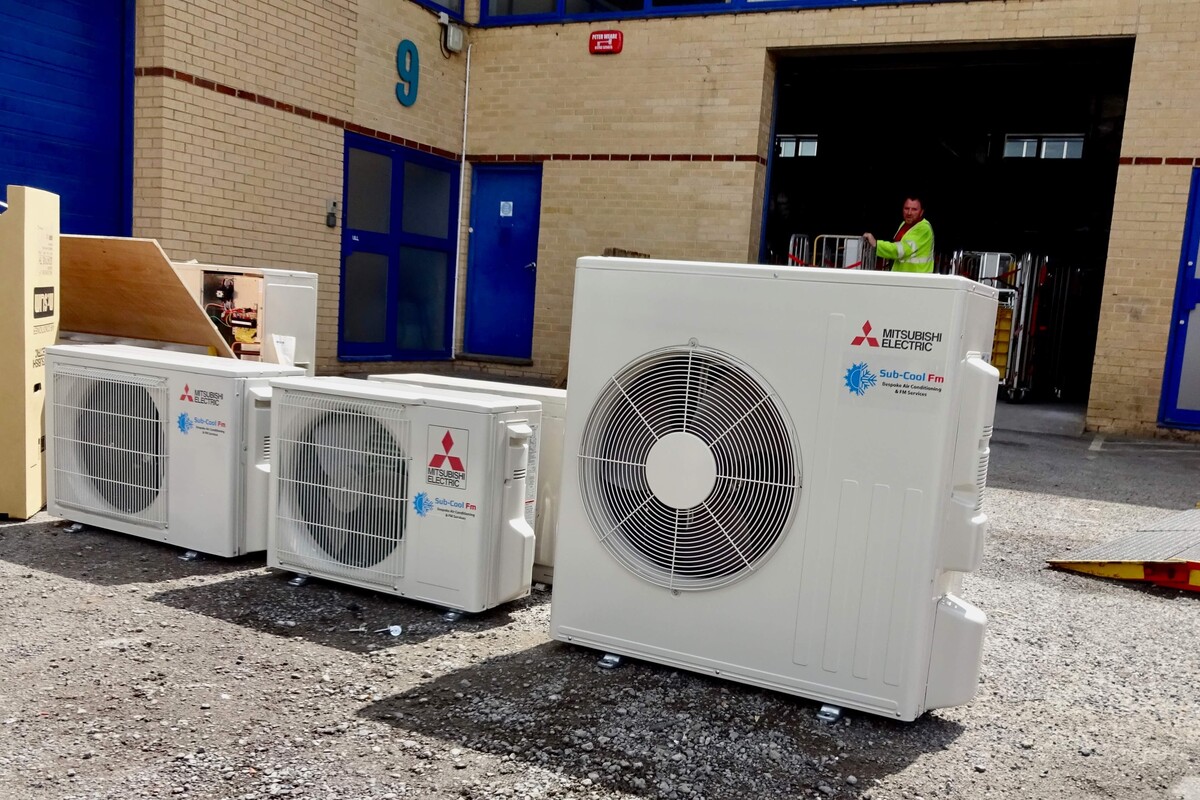

Home Maintenance
What Is Air Conditioning
Modified: October 20, 2024
Learn about the importance of air conditioning in home maintenance and how it can improve comfort and indoor air quality.
(Many of the links in this article redirect to a specific reviewed product. Your purchase of these products through affiliate links helps to generate commission for Storables.com, at no extra cost. Learn more)
Introduction
Welcome to the world of home maintenance! In this article, we will explore the wonderful world of air conditioning. Whether you live in a scorching hot climate or just need to cool off during those sweltering summer months, air conditioning is an essential component of modern-day living. But what exactly is air conditioning, and how does it work? Join us on this journey as we delve into the nuts and bolts of air conditioning systems, their benefits and drawbacks, maintenance tips, and much more.
When it comes to keeping our homes comfortable, air conditioning is often the go-to solution. It provides a breath of fresh, cool air when the temperature rises. But air conditioning is not just about keeping things cool; it’s also about controlling humidity and improving indoor air quality. In this article, we’ll explore the different types of air conditioning systems, their working principles, and the benefits they offer.
Whether you are considering installing a new air conditioning system or want to learn how to maintain your existing one, this article will equip you with the knowledge you need. We’ll discuss energy efficiency, indoor air quality, and share some valuable tips to keep your air conditioning system running smoothly for years to come.
So, sit back, relax, and get ready to dive into the world of air conditioning. By the end of this article, you’ll have a thorough understanding of what air conditioning is, how it works, and how to maximize its benefits while minimizing its drawbacks. Let’s get started!
Key Takeaways:
- Air conditioning is essential for creating a comfortable home environment by controlling temperature, humidity, and air quality. Regular maintenance and energy-efficient choices can maximize its benefits while minimizing drawbacks.
- Understanding the basics of air conditioning and implementing proper maintenance can ensure a cool, healthy, and cost-effective home environment. From filtration to energy efficiency, air conditioning offers comfort and quality living.
Read more: What Is Automatic Air Conditioning
Definition of Air Conditioning
Before we dive into the intricacies of air conditioning, let’s start with a simple definition. In basic terms, air conditioning refers to the process of controlling and manipulating the temperature, humidity, and overall air quality in a confined space, such as a home or office, to create a comfortable and pleasant environment. It involves removing heat and moisture from the air, replacing it with cool, dehumidified air.
Air conditioning systems work by using various components, including refrigerants, compressors, condensers, and evaporators, to regulate the temperature and humidity levels. These systems can be standalone units, such as window air conditioners or portable air conditioners, or centralized systems that cool entire buildings using air ducts and vents.
While the primary function of air conditioning is to cool the air, it is important to note that air conditioning also helps in dehumidification and air filtration. By reducing the humidity levels, air conditioning systems can create a more comfortable environment by preventing the growth of mold and mildew. Additionally, many air conditioning units come equipped with air filters that help in removing dust, allergens, and pollutants from the air, thereby improving indoor air quality.
In recent years, air conditioning has become an essential part of our daily lives, providing relief from extreme heat and creating a comfortable and healthy living environment. Whether it’s a hot summer day or a stuffy, humid night, air conditioning can significantly enhance our quality of life by maintaining optimal temperature and humidity levels.
As the demand for air conditioning continues to rise, manufacturers have developed various types of systems to meet different needs and preferences. These range from simple window units and split systems to sophisticated central air conditioning systems that can cool large commercial spaces.
Now that we have a clear understanding of what air conditioning is and its primary purpose, let’s delve deeper into how these systems work and the different types available.
How Does Air Conditioning Work?
Have you ever wondered how air conditioning systems are able to cool down the air in your home? Let’s take a closer look at the fascinating science behind it.
At the heart of every air conditioning system is a refrigeration cycle, which involves the transfer of heat from one area to another using a refrigerant. Refrigerants are specially formulated substances that have the ability to change from a gas to a liquid and back again at low temperatures.
The process begins with the evaporator coil, located inside the air conditioning unit or ductwork. The refrigerant, typically a gas at this stage, passes through the evaporator coil, absorbing heat from the surrounding air. As the warm air from your home passes over the cold evaporator coils, the refrigerant absorbs the heat, causing it to evaporate and turn into a low-pressure, cool gas.
The warm refrigerant gas then flows into the compressor, a vital component that increases the pressure and temperature of the gas. The compressed gas moves to the condenser, which is located outside the home. Here, the hot gas releases the absorbed heat to the outside environment, often with the help of a fan or blower.
As the refrigerant cools down and transforms back into a liquid state, it moves to the expansion valve or metering device, which reduces its pressure. This controlled release of pressure causes the refrigerant to quickly drop in temperature, making it ready to absorb heat once again.
The cooled liquid refrigerant returns to the evaporator coil, and the cycle continues. The process repeats itself until the desired temperature is reached and maintained in the room or space being cooled.
In addition to cooling the air, air conditioning systems play a crucial role in dehumidifying the indoor environment. As warm air passes over the cold evaporator coil, the excess moisture in the air condenses, forming droplets that are collected and drained away. This not only helps in reducing humidity levels but also makes the air feel more comfortable.
Now that we understand the basic principles of how air conditioning works let’s explore the different types of air conditioning systems available on the market.
Types of Air Conditioning Systems
When it comes to air conditioning, there are several different types of systems to choose from, each suited to different environments and preferences. Let’s explore some of the most common types:
- Window Air Conditioners: Window air conditioners are self-contained units that are installed in a window or a slot cut into a wall. These units are popular for cooling individual rooms or small spaces. They consist of a single box that houses all the components, including the evaporator, compressor, condenser, and fan. Window air conditioners are relatively affordable and easy to install, making them a convenient option for those with limited cooling needs.
- Split Air Conditioners: Split air conditioning systems consist of two parts: an indoor unit and an outdoor unit. The indoor unit comprises the evaporator coil and the fan, while the outdoor unit houses the compressor and condenser. The two units are connected by refrigerant lines, and the cool air is distributed through vents or ducts. Split air conditioners offer more flexibility in terms of installation and are suitable for cooling specific zones or multiple rooms.
- Ducted Air Conditioning: Ducted air conditioning systems are designed to cool an entire home or commercial building. They consist of a central unit that is typically located in the attic, basement, or a designated utility area. The cool air is distributed through a network of ducts that run throughout the building, delivering the conditioned air to each room via vents or registers. Ducted systems provide uniform cooling and are discreet, as the main unit remains hidden.
- Portable Air Conditioners: Portable air conditioners are versatile units that can be moved from room to room as needed. They typically consist of a single unit with wheels for easy mobility. Portable air conditioners require an exhaust hose to vent hot air outside through a window or wall opening. These units are a great solution for those who need temporary or supplemental cooling. However, they may not be as efficient as their fixed counterparts and are better suited for smaller spaces.
- Central Air Conditioning: Central air conditioning systems provide a whole-house cooling solution, typically found in larger homes or commercial buildings. These systems consist of a central unit that is connected to a network of ducts, distributing cool air throughout the entire property. Central air conditioning offers efficient and consistent cooling, allowing individual temperature control for each room or zone.
When deciding on the type of air conditioning system to install, factors such as the size of the space, the number of rooms, the cooling requirements, and budget considerations should be taken into account. It’s a good idea to consult with a professional HVAC technician to determine which system is best suited for your specific needs.
Now that we’ve explored the different types of air conditioning systems available, let’s examine the benefits they offer.
Benefits of Air Conditioning
Air conditioning offers numerous benefits that go beyond simply cooling the air. Let’s take a look at some of the advantages that air conditioning systems provide:
- Comfort and Temperature Control: The primary benefit of air conditioning is the ability to create a comfortable indoor environment. Whether it’s scorching hot outside or humid and muggy, air conditioning systems can regulate the temperature and humidity levels, allowing you to enjoy a cool and pleasant living space.
- Improved Indoor Air Quality: Many air conditioning units are equipped with air filters that help in removing dust, allergens, and pollutants from the air. This is especially beneficial for individuals with respiratory conditions or allergies, as it can reduce the presence of irritants in the indoor environment, resulting in better overall air quality.
- Reduced Humidity: Air conditioning systems not only cool the air but also dehumidify it. By removing excess moisture from the air, air conditioning systems help prevent the growth of mold, mildew, and other allergens that thrive in humid conditions. This can contribute to a healthier indoor environment and protect your home from structural damage caused by excessive moisture.
- Increased Productivity: Extreme heat and humidity can negatively impact productivity and concentration levels. By creating a comfortable and cool indoor environment, air conditioning can help improve focus, reduce fatigue, and enhance overall productivity, whether at home or in the workplace.
- Better Sleep: Trying to sleep in a hot and stuffy room can be a real challenge. Air conditioning can provide a cool and comfortable environment, promoting better sleep quality. This is especially important during hot summer nights when it’s difficult to get restful sleep without proper cooling.
- Preservation of Electronics and Furniture: Excessive heat and humidity can damage electronics, furniture, and other household items. Air conditioning helps maintain optimal temperature and humidity levels, prolonging the lifespan of electronic devices and preventing wood furniture from warping or becoming damaged due to moisture.
These are just a few of the many benefits that air conditioning systems offer. However, it’s important to note that proper maintenance and regular cleaning of filters are necessary to ensure optimal functioning and to maximize these benefits.
While air conditioning provides several advantages, there are also some drawbacks to consider. Let’s explore the potential downsides of air conditioning systems.
Regular maintenance of your air conditioning system, such as cleaning or replacing filters, can improve its efficiency and extend its lifespan.
Read more: What Is The Purpose Of Air Conditioning
Drawbacks of Air Conditioning
While air conditioning offers many advantages, it’s important to be aware of the potential drawbacks that come with using these systems. Here are a few considerations:
- Energy Consumption: Air conditioning systems consume a significant amount of energy, leading to higher energy bills. Cooling a space requires the use of compressors and fans, both of which consume electricity. Taking steps to improve energy efficiency, such as using programmable thermostats and properly insulating your home, can help mitigate this drawback.
- Environmental Impact: The increased energy consumption associated with air conditioning systems has a direct impact on the environment. Most air conditioning units rely on the use of refrigerants, which can contribute to ozone depletion or have a high global warming potential. It’s important to select units that use eco-friendly refrigerants and to properly dispose of old units to minimize environmental harm.
- Health Concerns: Air conditioning systems, if not properly maintained, can become breeding grounds for bacteria, mold, and fungi. Running an air conditioner with a dirty or clogged filter can circulate these particles in the indoor air, potentially leading to respiratory issues and allergies. Regular filter cleaning or replacement and scheduled maintenance can help mitigate this concern.
- Temperature Discrepancies: In large spaces or buildings with centralized air conditioning systems, temperature discrepancies between different rooms or areas can occur. This is sometimes due to factors like inefficient ductwork design or poor insulation. It may necessitate additional fans or the use of supplementary cooling methods to maintain consistent temperatures throughout the space.
- Noise Level: Air conditioning units can produce noise, especially older or larger systems. The noise level can be disruptive, particularly during periods when quiet is desired, such as during sleep or when working in a quiet office. Opting for systems with noise reduction features or considering alternative cooling methods, such as split air conditioning units, can help minimize this drawback.
- Initial Installation and Maintenance Costs: Air conditioning systems, especially larger or centralized units, can be expensive to install initially. Additionally, regular maintenance, filter cleaning, and occasional repairs or component replacement can add to the overall maintenance costs. However, proper maintenance can extend the lifespan of the system and improve its efficiency, reducing long-term costs.
Despite these drawbacks, air conditioning continues to be a popular choice for maintaining comfortable indoor temperatures. By taking steps to address these concerns, such as being mindful of energy consumption, practicing regular maintenance, and using modern, energy-efficient systems, you can mitigate the drawbacks and enjoy the benefits of air conditioning.
Now let’s move on to some important tips for maintaining your air conditioning system to ensure it functions optimally for years to come.
Tips for Maintaining an Air Conditioning System
To keep your air conditioning system running smoothly and efficiently, regular maintenance is essential. Here are some important tips to help you maintain your system:
- Keep the Filters Clean: The air filters in your air conditioning system play a crucial role in trapping dust, allergens, and other particles from the air. Over time, these filters can become dirty and clogged, obstructing airflow and reducing efficiency. Clean or replace the filters on a regular basis to ensure proper airflow and maintain good indoor air quality.
- Clean the Coils: The evaporator coils and condenser coils in your air conditioning system can accumulate dirt and debris over time, which can hinder heat transfer and reduce efficiency. Regularly clean these coils to ensure optimal performance. Consult your system’s manual or consider hiring a professional for thorough coil cleaning.
- Check the Condensate Drain: Air conditioning systems dehumidify the air, and the condensed moisture is collected and drained away. If the condensate drain becomes clogged, it can lead to water leaks and potential damage. Regularly check and clean the condensate drain to prevent issues and ensure proper drainage.
- Inspect and Clean the Outdoor Unit: The outdoor unit of your air conditioning system can accumulate dirt, leaves, and debris. Regularly inspect and clean the outdoor unit to ensure proper airflow and prevent any damage to the system. Keep the surrounding area clear and trim any vegetation that may obstruct the unit.
- Check Refrigerant Levels: Low refrigerant levels can affect the performance of your air conditioning system. If you notice reduced cooling or any other issues, have a professional check and recharge the refrigerant if necessary. Avoid attempting to do this yourself as it involves handling refrigerants, which should only be done by trained technicians.
- Use a Programmable Thermostat: A programmable thermostat can help optimize energy usage and reduce costs by allowing you to set different temperature schedules for different times of the day. This helps avoid running the system at full capacity when it’s not necessary.
- Schedule Annual Maintenance: Consider scheduling an annual maintenance service with a professional HVAC technician. They can inspect and tune up your air conditioning system, ensuring it’s in top condition, identifying any potential issues, and maximizing its efficiency.
- Keep the Area Around Vents Clear: Ensure that furniture, curtains, or other objects do not obstruct the airflow from the vents. Blocked vents can disrupt the proper circulation of cooled air and affect the overall cooling efficiency.
By regularly following these maintenance tips, you can maximize the lifespan of your air conditioning system, improve its energy efficiency, and enjoy consistent and comfortable cooling throughout your home or office.
Now let’s explore the important relationship between energy efficiency and air conditioning.
Energy Efficiency and Air Conditioning
As energy costs continue to rise and environmental concerns become more prevalent, energy efficiency has become a major consideration for homeowners when it comes to air conditioning systems. Opting for an energy-efficient air conditioning system not only helps reduce your carbon footprint but also saves you money on utility bills. Let’s explore some key factors to consider in relation to energy efficiency and air conditioning.
SEER Rating: One of the most important indicators of energy efficiency in an air conditioning system is the Seasonal Energy Efficiency Ratio (SEER) rating. The SEER rating measures the cooling output of the system compared to the energy it consumes. Higher SEER ratings indicate greater energy efficiency. When selecting a new air conditioning system, look for a model with a higher SEER rating to ensure optimal energy efficiency and cost savings.
Proper Sizing: It’s crucial to choose an air conditioning system that is properly sized for your space. An oversized unit may cool the area too quickly, leading to frequent cycling on and off, which can be inefficient and result in excess energy consumption. Conversely, an undersized unit may struggle to adequately cool the space, leading to constant running and increased energy usage. Consulting with a professional HVAC technician can help determine the appropriate size for your specific needs.
Smart Thermostats: Installing a smart thermostat with advanced features and programmable settings allows you to optimize energy usage. These thermostats can automatically adjust the temperature based on your schedule and preferences, reducing energy consumption when cooling is not needed. Some even offer remote control options, allowing you to adjust settings from anywhere via a smartphone app.
Regular Maintenance: Proper maintenance of your air conditioning system is essential for maintaining its energy efficiency. Regularly cleaning or replacing air filters, ensuring the coils are clean, and addressing any necessary repairs or component replacements will help the system operate at its best. Additionally, scheduling annual maintenance with a professional technician can identify any issues that may affect efficiency and address them promptly.
Insulation and Home Sealing: Poor insulation and air leaks can significantly impact the efficiency of your air conditioning system. Ensure that your home is properly insulated, paying attention to areas such as the attic, walls, and windows. Additionally, seal any gaps or cracks that allow air to escape or enter the space, as this can lead to energy wastage and a strain on your air conditioning system.
Utilizing Natural Ventilation: Taking advantage of natural ventilation can help reduce the need for constant air conditioning. Open windows and doors to allow for cross breezes, especially during cooler times of the day. Utilizing ceiling fans can also aid in circulating air and creating a cooler environment without solely relying on air conditioning.
By considering these factors and implementing energy-saving practices, you can optimize the energy efficiency of your air conditioning system, contributing to a greener and more cost-effective home.
Another important aspect to consider in relation to air conditioning is indoor air quality. Let’s explore the impact of air conditioning on indoor air quality.
Air Conditioning and Indoor Air Quality
While air conditioning systems provide relief from the heat and humidity, they also play a significant role in maintaining good indoor air quality. Indoor air quality is crucial for our health and well-being, and the proper functioning and maintenance of air conditioning systems can contribute to a clean and healthy indoor environment. Let’s explore the relationship between air conditioning and indoor air quality.
Filtration: Many air conditioning systems come equipped with air filters that help in removing dust, pollen, allergens, and other airborne particles from the indoor air. These filters trap these particles, preventing them from circulating throughout the space and reducing their impact on indoor air quality. Regularly cleaning or replacing these filters is essential to ensure their effectiveness.
Humidity Control: One of the key functions of air conditioning systems is dehumidification. Excessive humidity can contribute to the growth of mold, mildew, and other allergens that can impact indoor air quality and trigger respiratory issues. Air conditioning helps in maintaining optimal humidity levels, reducing the chance of these allergens flourishing. Regular maintenance, such as cleaning evaporator coils and ensuring proper drainage, is important to prevent moisture buildup and maintain effective humidity control.
Ventilation and Fresh Air: While air conditioning plays a crucial role in circulating and cooling indoor air, it is important to also introduce fresh air into the space. Some air conditioning systems have ventilation features that allow for the exchange of stale indoor air with fresh outdoor air. Proper ventilation helps dilute indoor air pollutants and can significantly enhance indoor air quality. Opening windows and doors when weather permits can also improve ventilation.
Avoiding Contamination: Proper maintenance of air conditioning systems is essential to avoid contamination and prevent the growth of bacteria, mold, and fungi. Regular cleaning of coils, filters, and condensate drains helps prevent these microbes from proliferating and being circulated into the indoor air. It is crucial to follow the manufacturer’s guidelines and ensure that all components are kept clean and in good condition.
Avoiding Chemical Pollutants: Air conditioning systems can potentially contribute to indoor air pollution if they are not properly maintained or if low-quality materials are used. Regular inspection of ductwork, ensuring proper sealing and insulation, and avoiding the use of harmful chemicals in cleaning products or air fresheners can help prevent the release of pollutants into the indoor air.
By maintaining and properly cleaning your air conditioning system, you can ensure that it contributes positively to indoor air quality. Regular maintenance, combined with good ventilation practices and the use of high-quality filters, helps keep the air inside your home clean and healthy.
Now that we’ve explored the impact of air conditioning on indoor air quality, let’s conclude our comprehensive guide to this essential home maintenance system.
Read more: What Is A Register In Air Conditioning
Conclusion
Air conditioning is a vital component of modern home maintenance, providing comfort, temperature control, and improved indoor air quality. Understanding the basics of air conditioning is essential for homeowners looking to maximize the benefits of their systems while addressing potential drawbacks.
We explored the definition of air conditioning as the process of controlling temperature, humidity, and air quality to create a comfortable and pleasant indoor environment. We learned how air conditioning systems work, utilizing refrigeration cycles to remove heat and moisture from the air and replace it with cool, dehumidified air.
There are various types of air conditioning systems, ranging from window units and split systems to centralized ducted systems. Each type has its advantages and considerations, depending on factors such as the size of the space, cooling requirements, and personal preferences.
Air conditioning systems offer numerous benefits, including enhanced comfort, improved indoor air quality, reduced humidity, increased productivity, better sleep, and preservation of electronics and furniture. However, it’s important to be aware of potential drawbacks such as energy consumption, environmental impact, health concerns, temperature discrepancies, noise level, and initial installation and maintenance costs.
To maintain an air conditioning system’s efficiency, regular maintenance is crucial. This includes cleaning or replacing air filters, inspecting and cleaning coils, checking the condensate drain, inspecting and cleaning the outdoor unit, checking refrigerant levels, utilizing programmable thermostats, scheduling annual maintenance, and keeping the area around vents clear.
Energy efficiency is a key consideration when choosing an air conditioning system. Opting for models with higher SEER ratings, properly sizing the system, using smart thermostats, regular maintenance, and ensuring proper insulation and home sealing can all contribute to increased energy efficiency and reduced environmental impact.
Air conditioning systems also play a significant role in maintaining indoor air quality. Features such as filtration, humidity control, ventilation, avoiding contamination, and minimizing chemical pollutants are important for ensuring clean and healthy indoor air.
In conclusion, air conditioning is a powerful tool for maintaining a comfortable and healthy living environment. By understanding how these systems work, considering their benefits and drawbacks, and implementing proper maintenance and energy-saving practices, homeowners can enjoy the advantages of air conditioning while minimizing any potential drawbacks. So stay cool, breathe easier, and make the most of your air conditioning system for a more comfortable and enjoyable home.
Frequently Asked Questions about What Is Air Conditioning
Was this page helpful?
At Storables.com, we guarantee accurate and reliable information. Our content, validated by Expert Board Contributors, is crafted following stringent Editorial Policies. We're committed to providing you with well-researched, expert-backed insights for all your informational needs.
